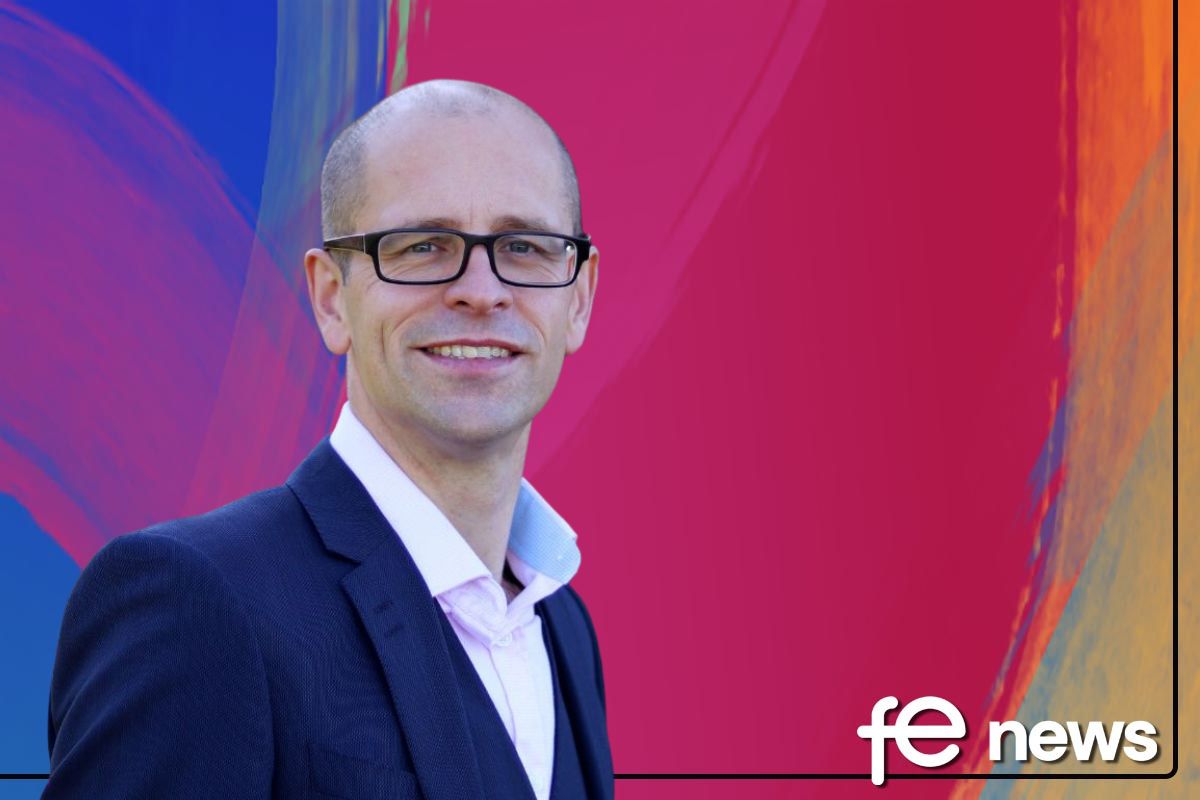Why helping young people form positive, lifelong money habits is more important than ever

As CEO of Wealthify, Andy Russell knows financial education in UK schools isn’t up to scratch. In this article, he explains how – and why – Wealthify is on a mission to change that.
As a parent of three, I know first-hand the lack of opportunity for young people to learn how money works in the real world before reaching financial independence.
Sadly, this is reflected in the UK’s financial literacy levels, with research we recently carried out alongside economic think tank, CEBR, showing that only 5% of the country could answer 10 questions about frequently discussed financial topics correctly. This is worrying, given that most don’t have enough cash to be taken on by a financial advisor, generally turn to friends and family for financial advice.
More worryingly still, is the fact that within this same research, young people on the cusp of financial independence (aged 16 to 18) could only answer 2 in 10 questions correctly. Something needs to change to stop this cycle.
Understanding the problem
Having spoken to over 100 teachers of 16 to 18-year-olds across the UK, one thing quickly became apparent: teachers don’t have the time or resources to instil healthy money habits as part of classroom education.
In turn – and as shown by our research – this is creating a negative impact that’s lasting years, with young people going out into the big wide world (a world caught in an ongoing cost of living crisis, no less) without the knowledge or confidence to make good financial decisions.
By partnering with financial education charity, Young Enterprise, to create Future Skills, we’re proud that we have taken the first step in helping resolve this problem.
What is Future Skills — and why are we doing it?
In a nutshell, Future Skills is a free online resource that helps teachers help 16 to 18-year-olds form positive lifelong financial habits.
Improving financial literacy levels is something we’re passionate about at Wealthify. But so much more than that, Future Skills was created because it answers the very real demand among young people nowadays: 82% of them want to learn more about money and finance in the classroom.
Naturally, this isn’t something we could do alone, which is why Young Enterprise’s guidance has been invaluable. As well as helping us identify what needs to be taught, they also helped us establish how it needed to be delivered.
After all, 82% of young people might well want to learn more about money, but if we’re not saying it in a way that resonates with this generation of aspirational digital natives, then we might as well not say it at all. Especially given that it’s teenagers we’re talking about here!
Giving young people a reason to believe
Working alongside Young Enterprise, we needed to find the financial hook that would get 16 to 18-year-olds to sit up, take notice — and engage.
And, with Child Trust Funds maturing over the next six years – the average matured value of one that hasn’t yet been accessed being £2,100 – we found our ‘why’.
Teaching young people how to check if they’ve got – and find – a Child Trust Fund account formed the basis of our financial education journey, followed by helping them plan what they want from their money, manage a lump sum, and form good money habits for life.
Authenticity through likes and shares — not stocks and shares
With authenticity being the single most important personal value for our target demographic, we knew we had to get our tone of voice and overall delivery just right.
In order to achieve this, we wanted to create something that looked and felt more at home on social media, as opposed to within the realms of ‘traditional’ financial products.
And, with statistics also showing that TikTok is now used by 53% of 3 to 17-year-olds in the UK, we decided to enlist the help of two of its biggest British stars: Kyron Hamilton and Maddie Grace Jepson.
Boasting just under 3m combined followers on TikTok alone, the pair present Future Skills’ fictional news programme, The Bread Show. Delivering financial information, hints, and tips in a manner that resonates with 16 to 18-year-olds, the result is a resource and brand that feels fresh, informative, and more up their street, as opposed to Wall Street.
The feedback has already been brilliant, with one London-based secondary school teacher noting “the two presenters are relatable people from popular social media channels; this will be engaging for students.”
The time to act is now
Ok, so what’s next for Future Skills?
Well, first of all, we want to get it into as many classrooms as possible.
And, with the current cost of living crisis showing no signs of easing – not to mention the ever-present problem of misleading financial promotions on social media – we want to do so as quickly as possible, too.
We’re also going to be talking to the powers that be to see if we can change the curriculum, whilst looking at how our products can better help embed better financial habits.
Because, when it comes to helping young people form positive, lifelong money habits, we’re at a pivotal crossroads.
And we can either carry on walking in the same direction — or create a brand-new path for future generations.
By Andy Russell, CEO of Wealthify











Responses